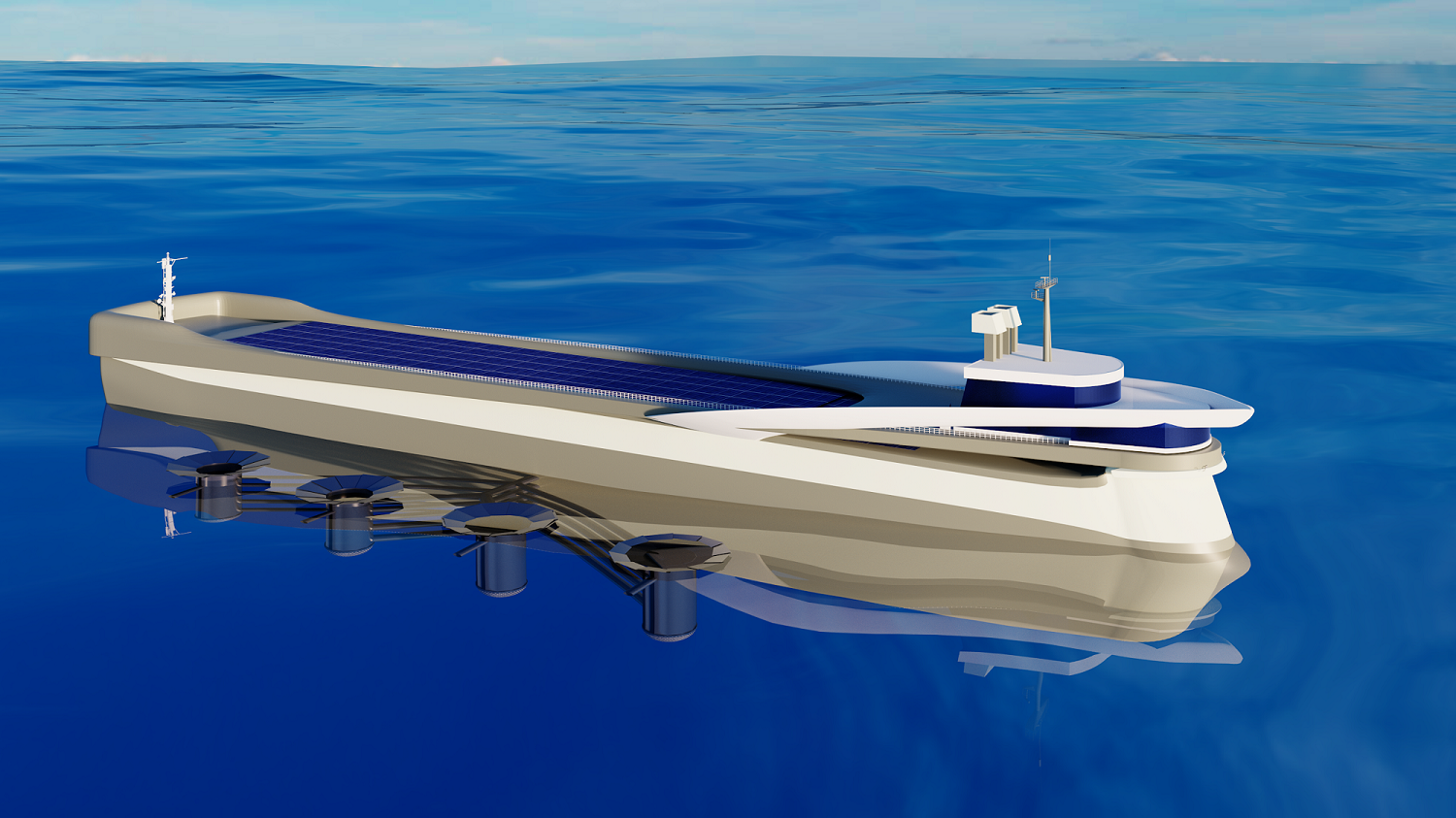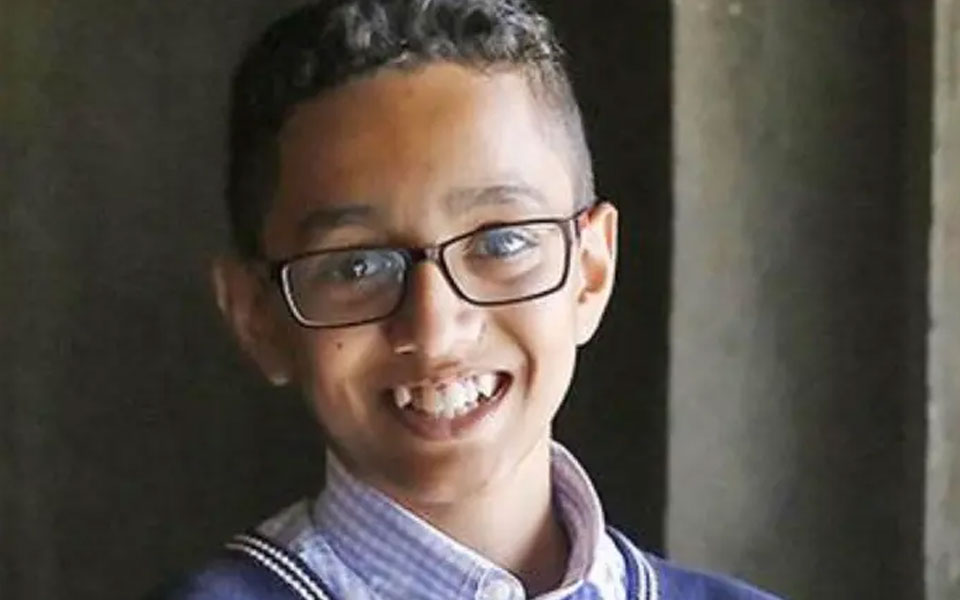Ocean pollution is an enormous challenge and the hazardous effects of plastic pollution in the oceans have spurred many individuals, organizations and companies to develop ingenious methods and create innovative devices to tackle the problem.
Among the few environmentalists and scientists, a 12- year old Indian boy Haaziq Kazi is hogging the limelight for designing a ship named ERVIS that could clean up the waste out of the ocean’s surface.
Genius design
Two years ago, Haaziq Kazi, studying in Pune’s Indus International School in Grade 5 was dismayed by the magnitude of the plastic pollution in the oceans and the devastating ill-effects on the marine life and decided to design a ship to collect the waste from the oceans and clean it.
Since last year, Haaziq has been highlighting the hazards of ocean plastic pollution and measures to prevent it. He has been working with different people, organisations and forums to create public awareness for the same.
Recently, Haaziq Kazi was one of the speakers at the TEDxGateway event in Mumbai where he received applause for his genius design as well as his take on the ocean’s plastic pollution. Speaking to Al Arabiya English, Haaziq Kazi shed light on his innovation ERVIS and the importance of overcoming plastic pollution in the ocean in a responsible manner.
In 2016, his interest to clean up the world’s ocean was sparked by watching documentaries on the National Geographic Channel about the ocean waste problem and its dangers to marine life. He was also impressed by Boyan Slat’s TED Talk and also wanted to make a difference on the ocean waste problem.
Explaining the concept of ERVIS’s emergence, Haaziq said that once while washing his hands he watched the water flow into the sinkhole. He thought he can use the same principle of centripetal force to suck waste from the ocean’s surface. This created his first rough model of ERVIS which was his vision for changing the future.
However, the current prototype design of ERVIS emerged much later, in mid 2017, following extensive research and consultations with few scientists, designers, inventors and environmentalists; all of whom helped him to refine his vision of ERVIS and make it more practical in design.

ERVIS is an intelligent ship which has multiple saucers and chambers surrounding it. (Supplied)
The Intelligent Ship
Talking about the functions and features of ERVIS, Haaziq says, ERVIS is an intelligent ship which has multiple saucers and chambers surrounding it. The saucers suck in the ocean’s waste and through connected pipes send it across five different chambers; within which the entered waste is analysed, segregated and compacted and the filtered water is pumped back into the oceans.
The first chamber is for waste oil and the other four chambers are for large, medium, small and micro waste respectively. Haaziq clarifies that although he is currently working on the prototype of ERVIS, “It is still in the initial phases.
It will have to go through multiple stages and trials along with substantial funding before a fully operational ERVIS comes out in the oceans.Yet, Haaziq is optimistic that ERVIS will be a reality and in the future, multiple ERVISes will man the oceans; cleaning and scavenging the waste off it”.
Haaziq wants to use sustainable energy to power ERVIS like solar energy or Renewable Natural Gas (RNG) or Liquefied BioGas (LBG); being inspired by newer radical designed ships, which are utilising sustainable energy. He also hopes to make ERVIS fully autonomous like TESLA.
Haaziq is very passionate about creating public awareness of the dangers of ocean plastic pollution as he believes that this will solve a multitude of problems. He states that the global consumption of plastic in the last decade alone has surpassed that of the last century’s plastic consumption and that a major part of it was ending up in the oceans.
‘No Planet B’
Haaziq quotes Mahatma Gandhi and says, “Be the change you want to see in the world.” He further emphasises, “We all have in some manner contributed and created this ocean waste problem and if we don’t make smart choices or change the way we consume plastic in a more responsible manner, this problem will not only persist, but it will aggravate.”
He further asserts that he wants people to be conscious of their choices as there is only one earth which will be bequeathed to future generations and that our actions now will determine our legacy. He reminds us that “There is no Plan B, as there is no Planet B”.
When asked about his future plans and innovation, he muses that there is so much more to be done and adds that the ocean plastic problem itself poses the bigger problem of micro plastics which are more in quantity and a greater threat than plastics on the ocean surface. He mentions that wastes on beaches are a challenge.
He further adds that through ERVIS he wants to create a platform for like-minded people to connect and collaborate and help alleviate the problems facing the oceans and marine life.
Haaziq sees himself solving problems of the world innovatively and by sustainable means. One such problem that this child prodigy wishes to resolve relates to urban transportation.
Courtesy: english.alarabiya.net
Let the Truth be known. If you read VB and like VB, please be a VB Supporter and Help us deliver the Truth to one and all.
Ottawa (PTI): Three Indian nationals have been arrested by Canadian police on an anti-extortion patrol and charged after bullets were fired at a home.
Harjot Singh (21), Taranveer Singh (19) and Dayajeet Singh Billing (21) face one count each of discharging a firearm, and all have been remanded in custody until Thursday, the Surrey Police Service (SPS) said in a statement on Monday.
The suspects were arrested by patrol officers after an early morning report of shots fired and a small fire outside a home in Surrey's Crescent Beach neighbourhood, the LakelandToday reported.
On February 1, 2026, the SPS members were patrolling in Surrey’s Crescent Beach neighbourhood when reports came in of shots being fired and a small fire outside a residence near Crescent Road and 132 Street.
The three accused were arrested by SPS officers a short time later, the statement said.
SPS’s Major Crime Section took over the investigation, and the three men have now been charged with Criminal Code offences, it said.
All three have been charged with one count each of discharging a firearm into a place contrary to section 244.2(1)(a) of the Criminal Code.
The investigation is ongoing, and additional charges may be forthcoming. All three have been remanded in custody until February 5, 2026.
The SPS has confirmed they are all foreign nationals and has engaged the Canada Border Services Agency, it said.
One of the suspects suffered injuries, including two black eyes, the media report said.
Surrey police Staff Sgt. Lindsey Houghton said on Monday that the suspect had refused to comply with instructions to get out of the ride-share vehicle and started to "actively resist."
"As we were trained, he was taken to the ground and safely handcuffed," said Houghton.
A second suspect with a black eye was also injured in the arrest after refusing to comply, Houghton said.
The arresting officers were part of Project Assurance, an initiative that patrols neighbourhoods that have been targeted by extortion violence.
Houghton said the Canada Border Services Agency (CBSA) is also involved because the men are foreign nationals, and the trio may face additional charges.
It's not clear if the men are in the country on tourist visas, a study permit, or a work permit, but Houghton said CBSA has started its own investigation into the men's status.
Surrey has seen a number of shootings at homes and businesses over the last several months, but there's been an escalation since the new year.





